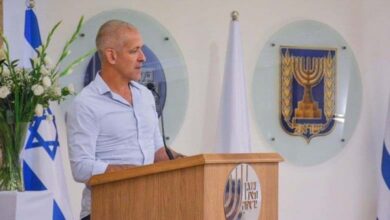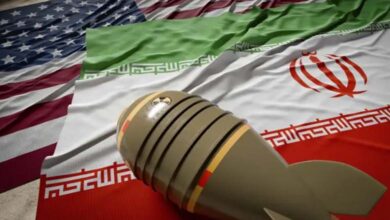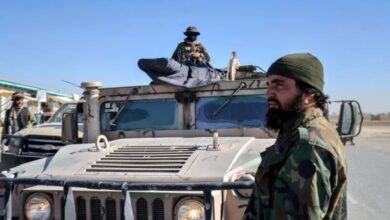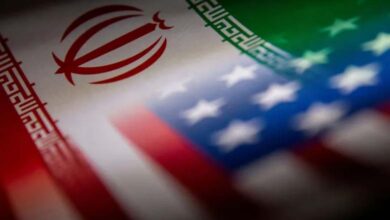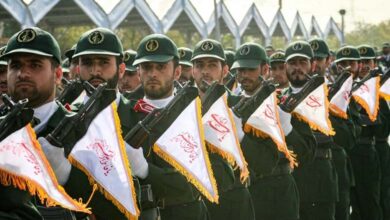The phase of no return.. The Brotherhood document controls the organization’s death certificate and torpedoes the hopes of dialog
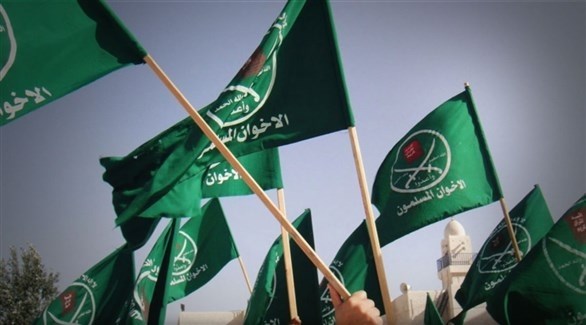
With hopes of a return to politics dashed and the Egyptian leadership refusing to cooperate with those whose hands were tainted with Egyptian blood, the Muslim Brotherhood has revealed its “ugly” face.
The General Office, or those who call themselves the Third Movement, on Saturday evening launched what is known as the “First Document: Political Release of the Movement for Change in the Brotherhood”, in which it tried to admit the mistakes and its allies, in the hope of attracting supporters.
However, this conference, which was sponsored by the wing of Mohammed Kamal, a Muslim Brotherhood terrorist leader who was killed years ago in a security raid, was seen by experts as the beginning of a new wave of violence and a “coup” against the Egyptian state, pointing out that it is a green light for the armed militias of the Islamic State to carry out specific operations targeting the country where millions of people took to the streets a few years ago in a revolution that uprooted the organization.
According to experts, the Kamalists included a number of the organization’s youth and extremists, and trained individuals in a number of countries in sabotage, bombing, and violence; to exploit them in acts against Egypt and a number of Arab countries.
Violence is the only option
Amr Abdel Moneim, an expert on Islamist groups, said that the Change Movement conference is a message confirming that the group will not take sides through violence and force as the only option for confrontation.
Abdel Moneim said the Change Movement in this document unleashed violence and preparations began next month, in conjunction with the climate conference in Egypt’s coastal city of Sharm el-Sheik.
The group has been working for the past year to mobilize and train its members on how to use force and exploit events, economic crises and the repercussions of the coronavirus to serve its purposes, he said.
Abdel Moneim said that the Brotherhood believes that there is no alternative to the political work of the group, and that it is the true legacy that it was known for, which brought it to power and enabled it to win parliamentary seats. He pointed out that the document considered that the wings of the conflicting group did not exist, and that they are the only legitimate representative, and that the issue of those imprisoned inside is the main issue that the group seeks to resolve.
He said the Brotherhood believes that the only solution to try to return to politics is to use force in various ways, which means working to ignite internal strife in Egypt.
Terrorist movement
Abdel Moneim agreed with Islam al-Katani, a dissident Muslim Brotherhood member and researcher on Islamist movements, who said the timing of the conference raises a question mark, especially with calls for an exit on November 11th.
Al-Katani said that members of the General Bureau, or the so-called Third Movement, have been trying to reunite themselves in the past five years, as the fronts of Mahmoud Hussein in Istanbul and Ibrahim Munir in London “are being fought”.
Most Kamalist and their supporters are young people, not leaders, he said, following the death of Mohammed Kamal and the arrest of Mohammed Abdul Rahman al-Morsi, chairman of the Supreme Administrative Committee and a member of the Guidance Bureau in 2017. He said they have begun to play on the emotional strain by exploiting the price crisis resulting from the Russian-Ukrainian war.
Members of the Brotherhood have begun to intensify their interaction with social media platforms by issuing calls for dismissal next November, exploiting the climate summit and attempting to tarnish Egypt’s image before the world, the dissident Brotherhood member said.
Message to security
These moves send a message to Egyptian security forces that they must exploit and be vigilant against the terrorist group’s actions in the near future, as they call for the return of specific cells that were committing acts of violence against the state, he said.
Mounir Adeeb, an Egyptian expert on Islamist groups and international terrorism, said armed militias in Cairo, including the Hasm Movement, Liwa al-Thawra and the Popular Resistance Movement, announced a return to violence. He said these groups are affiliated with the Kemalist movement.
Adib said that Kamalists had succeeded in training “people in some countries” to prepare for a renewed activity against the state.
Split state
The Egyptian expert on Islamist groups and international terrorism said that while the organization was fragmented and divided, these individuals came out to express themselves as they saw themselves as representatives of the Brotherhood.
He pointed to the need for what he called “jihad and resistance against the authority in Egypt” as the beginning of a declaration of violence and a coup against the authority, as happened in 2014 and followed, stressing that the Kemalists succeeded in attracting a small number of the group’s youth, as well as some who swung around the Brotherhood, the most prominent of which was the Salafi jihadist.
He said the document is the beginning of a real beginning for a phase of violence against the Egyptian state, which was previously carried out by armed militias.





